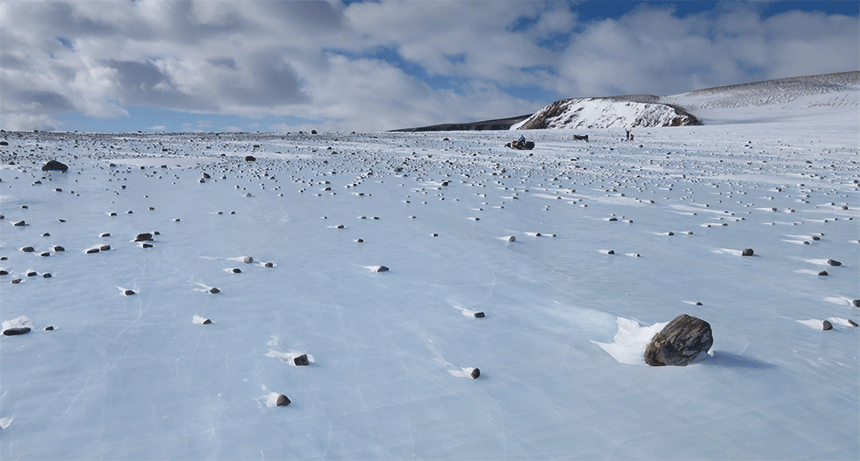Questions for ‘Hot on the trail of Antarctic meteorites’

Antarctica can be a great place to hunt for meteorites because they show up easily on the icy surface. However, they also can be difficult to distinguish from regular rocks on the ice.
Cindy Evans/NASA